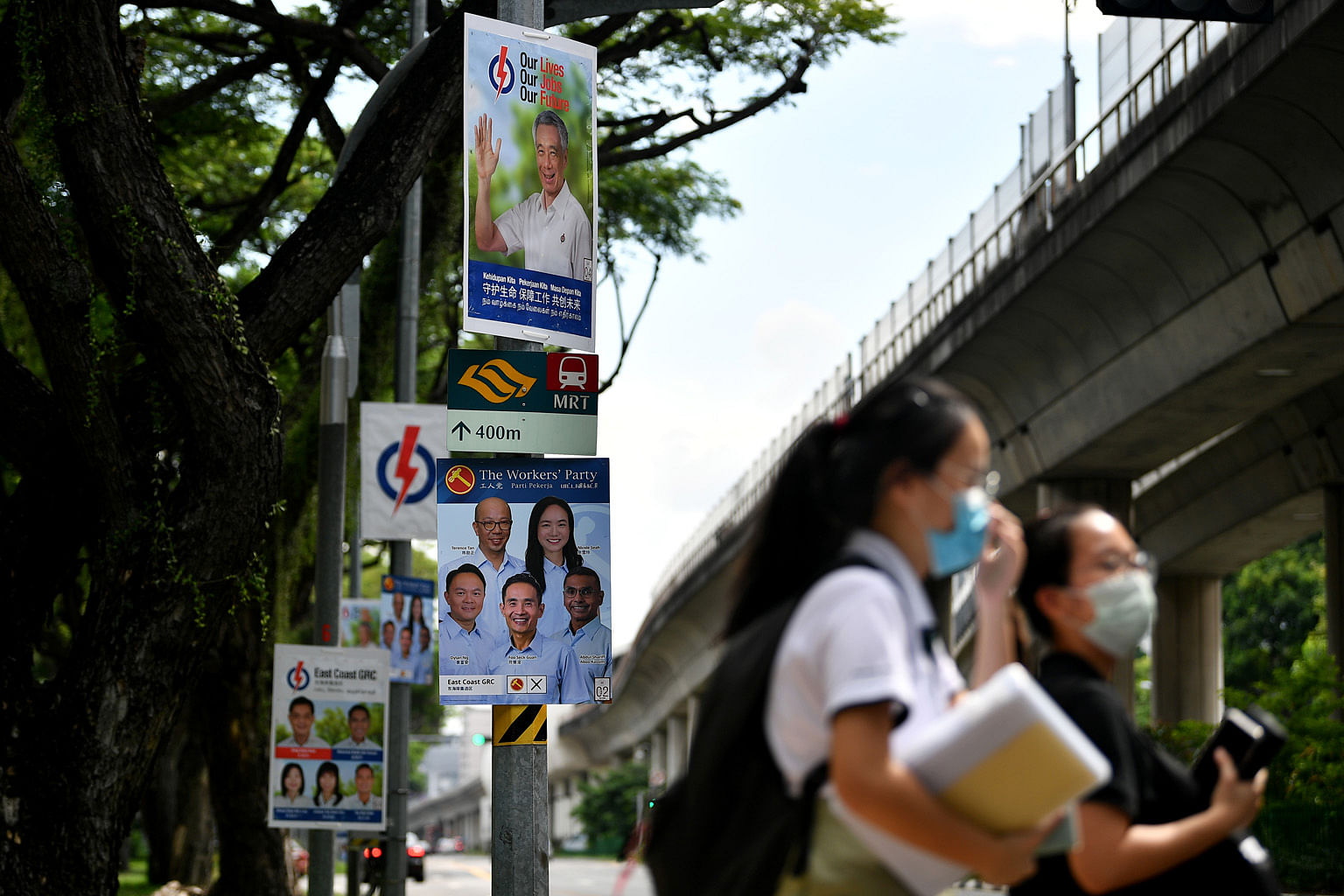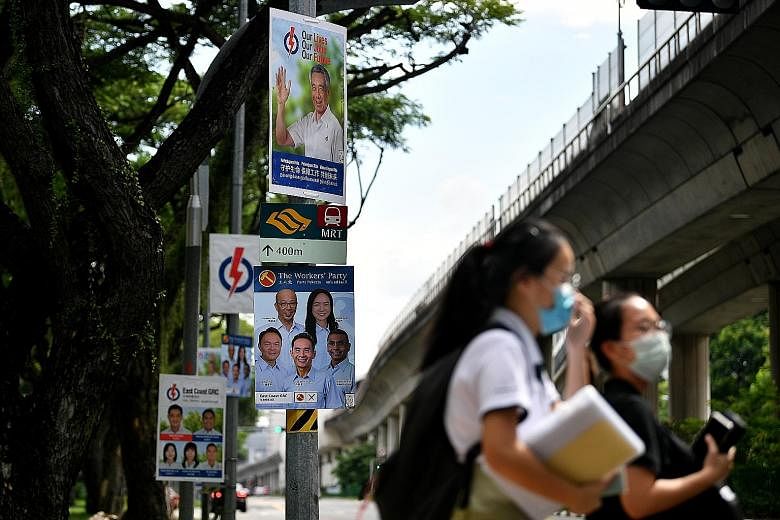Diverse issues are coming into play for Singapore's upcoming general election. Some concern the pandemic and responses in recent months, while others relate to longer-term issues. While there are geopolitical considerations, elections often focus attention on domestic issues.
To some, geopolitical and future-focused issues may seem somewhat abstract. But they can impact Singaporeans hard and quite immediately. What is said and done on the campaign trail could set our society on a different path. In the coming election, global issues connect more than ever to the local, and three bear close consideration.
RECONNECTING TO THE WORLD
The first is how much Singapore depends on the world. The pandemic underlined this essential truth for our small country and open economy. The virus was imported and borders must continue to be safeguarded to prevent future contagion.
But as the world shut down, many Singaporeans felt the loss of travel for business and leisure, and shocks in supply chains, even worrying about essential items and food security. Bad global conditions will result in post-election impacts on the economy and on jobs. With the unprecedented four Budgets amounting to almost $93 billion to cope with the pandemic already approved, the next government can soften the impact for Singapore but cannot avoid the global fall.
In response, Singapore must work to re-establish connections as quickly and safely as possible. The work on this has already begun with the first green lane for business travel to parts of China, and discussions advancing with Australia, New Zealand and Asean neighbours. Reconnecting as a hub for the region and the world, quickly and safely, is a critical path for Singapore's recovery.
In reconnecting, global partners will want to know that Singapore remains a steady and trustworthy partner. Moreover, as Singapore re-enters these countries, they will seek reciprocity and win-win arrangements. As such, calls to close borders have no basis for Singapore's future. Yet, protectionist and nativist arguments are growing elsewhere, and they can surface here.
FOREIGNERS AMONG US
Remember the 2011 General Election? At that time, rising housing prices, strained public transport and jobs were key issues. Underlying this was a resentment towards foreigners living and working here, and such sentiment remains with some.
In these last months, risible anti-foreigner sentiments showed up on social media when some expatriates flouted social distancing rules. Some felt the Government was too generous in providing for foreign workers when responding to the outbreak in their dormitories. Across many countries, anti-foreigner sentiments have spiked, and some candidates may well spark and fan the issue here. This can catch fire with the predicted economic hit and job losses.

Facts refute such sentiments. First, processes and regulations for foreigners acquiring jobs in Singapore have been tightened in recent years. The minimum salary for any foreign professional to qualify for an employment pass has progressively increased, while quotas for foreigners to become permanent residents (PRs) have been reduced over the last decade.
Second, Budgets in response to the pandemic give job support to companies for the employment of Singaporeans and PRs.
Third, the Government has promised to create 100,000 new job opportunities over the next year. For example, places under the SGUnited Traineeships Programme will be doubled and open only to Singaporeans and PRs.
Yet, even if wrong on the facts and bad for Singapore's recovery, nativist appeals will be all too easy to make. Voices of populism and narrow nationalism must be resisted and called out.
FACING PROBLEMS WITH A BIG HEART
No one on the campaign trail should irresponsibly tout solutions that promise to be quick and painless. The hard fact is that problems lie ahead. As seen in other countries, a second wave of infections is possible, and resolute and rapid responses will be needed. Even without this, the poor global economy will continue to impact Singapore.
But in facing these challenges, our response should not be characterised by fear and resentment. We should prefer contesting candidates to offer hope and practical action - ways to face problems squarely and find inclusive solutions for all.
Within Singapore itself, disparities and special vulnerabilities must be recognised and efforts increased to tide over hardships and adjust to the changing economy. In addition to assisting Singaporeans, more should also be done for those living and contributing here, especially the essential and lower-wage workers.
Efforts and assistance must also extend beyond our shores. Singapore should actively assist partners to respond and deal with the pandemic, so that reopening to the region is not only faster, but also safer for all and on a win-win basis. We need to evolve practical, positive and big-hearted approaches, and not turn fearful, negative and inward.
POTENTIAL WATERSHED
Some commentators suggest the incumbent People's Action Party will garner more votes because of its handling of the pandemic and the assistance doled out in these last months. I am less sure there will be a "pandemic dividend".
While many think the Government did well, others harp on every gaffe. As for government assistance, Budgets have been unprecedented in scale, but some will take help for granted and feel efforts will never be enough. There are also those who treat this election as normal, looking mostly at local issues and personalities.
The broader and future-focused perspective differs. This election is a potential watershed. This is not only because of the changes in leadership and notable retirements from government and also the opposition. Nor is it only because of the fourth-generation or 4G leadership who has been in charge of the day-to-day responses to the pandemic and is scheduled to take over.
The potential watershed change is about Singapore's social compact and our place in the world; how we will cope with the challenges ahead, both domestically and globally, as the world resets from the pandemic. The vote for different candidates matters. But so does the vote in terms of the kind of Singaporean politics and society we choose.
One path will ride on fear and offer false promises and populist policies that make Singapore turn inwards, under the guise of "Singapore-first" policies.
The other path is to have a clear-eyed recognition of the challenges ahead, and respond not only with determined and robust spirits, but also with a practical and big-hearted inclusiveness. This is the true meaning of Singapore-first - keeping Singapore an open and welcoming city as that is the best way to improve Singaporeans' lives; not walling ourselves into a small citadel.
It remains to be seen which view will prevail in the election for Singapore as home for all of us, and as a hub in our region and the world.
- Simon Tay is chairman of the Singapore Institute of International Affairs, and an associate professor teaching international law at the National University of Singapore.

